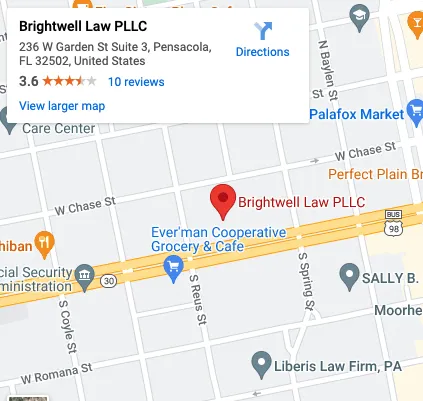Unraveling the Process that Can Change Your Divorce Experience
Facing a divorce can be one of the most emotionally draining experiences anyone can go through. The traditional courtroom battles can leave families emotionally and financially strained. However, there is another option available. In Pensacola, Florida, collaborative law offers a solution, focusing on resolution rather than conflict. This process offers couples a way to separate with dignity and mutual respect.
Brief Overview:
Here’s a quick rundown of what you need to know about collaborative law:
- Collaborative law offers an alternative approach to divorce in Pensacola, Florida, focusing on resolution rather than conflict.
- Collaborative law involves both parties retaining their respective attorneys and working together in cooperative meetings to find mutually satisfactory resolutions.
- This approach prioritizes open communication, transparency, and the welfare of all involved, especially if children are part of the equation.
- Collaborative law differs from traditional divorce in terms of approach, setting, cost, control over the outcome, and post-divorce relationships.
- The collaborative process includes steps such as choosing collaborative law, assembling the collaborative team, signing a participatory agreement, holding joint meetings, gathering information, problem-solving, drafting the agreement, finalizing the divorce, and transitioning post-divorce.
Our family law attorneys at Brightwell Law, PLLC, have extensive experience in collaborative divorce. We have helped countless families navigate this less confrontational route. We understand the unique challenges that Pensacola residents face, and we are committed to guiding our clients through each step of the process, providing them with support and information.
If you are ready to explore a kinder and more collaborative approach to divorce, contact Brightwell Law, PLLC today.
What is Collaborative Law?
Collaborative law, often referred to simply as “collaborative practice,” is an alternative approach, one that steers clear of the often contentious environment of traditional legal proceedings such as divorce. Instead of both parties gearing up for potentially heated court battles, they come together in a cooperative environment to find mutual resolutions.
In the collaborative process, both parties retain their respective attorneys, but everyone involved commits to working together in a series of meetings to discuss and resolve the issues at hand. This approach emphasizes open communication, transparency, and the welfare of all involved, especially if children are part of the equation.
What sets collaborative law apart is the mutual agreement that neither party will go to court or threaten litigation. If the collaborative process breaks down and litigation becomes the chosen route, both attorneys withdraw from the case, and the parties seek different representation. This commitment ensures that everyone’s focus remains on finding amicable solutions, often leading to outcomes that are more satisfactory and lasting for everyone involved.
Benefits of Choosing Collaborative Law in Pensacola
Choosing collaborative law in Pensacola has many advantages that align with the city’s community-focused values. This approach not only leads to a more peaceful resolution but also reflects the spirit of collaboration. Here are some of the main benefits of choosing collaborative law:
- Preserving Relationships: Collaborative law aims to maintain respect between parties, ensuring that family bonds remain intact.
- Cost-Effective: Traditional court proceedings can be expensive, but collaborative law often results in reduced costs due to open communication and negotiation, leading to fewer court fees and a potentially quicker resolution.
- Tailored Solutions: Each family has unique needs, and collaborative law allows them to create solutions that are specific to their circumstances, ensuring outcomes that are in the best interests of everyone involved.
- Privacy and Confidentiality: Collaborative law takes place in private settings, offering a discreet way to handle personal matters for those who value their privacy.
- Emotional Well-being: Traditional legal battles can be stressful and damaging to one’s mental and emotional health. Collaborative law prioritizes amicability and understanding, promoting the emotional well-being of all parties.
- Local Experience: Collaborating with professionals who understand the local nuances of Pensacola can be invaluable in achieving outcomes that resonate with the community’s values.
Collaborative Law vs. Traditional Divorce: Understanding the Differences
In Pensacola, as in many other places, individuals are often torn between the paths of collaborative law and traditional divorce. To make an informed decision, it’s crucial to grasp the key differences between these approaches.
1. Approach and Philosophy:
- Collaborative Law: This method emphasizes mutual respect, open dialogue, and cooperation. Parties work together, prioritizing the family’s well-being and aiming for win-win resolutions. It’s about finding common ground and fostering a positive post-divorce relationship.
- Traditional Divorce: Often viewed as adversarial, this process usually involves each party advocating strongly for their interests, sometimes at the expense of the other. The outcome can be unpredictable, as decisions might be left in the hands of a judge.
2. Setting and Procedure:
- Collaborative Law: Meetings are conducted in neutral settings, promoting open dialogue. All parties, along with their lawyers, participate in negotiations, crafting solutions that are mutually beneficial.
- Traditional Divorce: Proceedings typically occur in a courtroom, with formalities and procedures guided by the legal system. A judge often has the final say if parties cannot reach an agreement.
3. Cost and Time:
- Collaborative Law: Generally, the process can be less costly since it often leads to quicker resolutions without extensive court fees. The timeline is more flexible, often dictated by the parties’ willingness to cooperate.
- Traditional Divorce: With court fees, extended legal battles, and multiple hearings, costs can escalate. The timeline can be lengthy, especially if there are contested issues.
4. Control Over Outcome:
- Collaborative Law: Parties maintain control over the decisions, crafting solutions that align with their values and the best interests of the family.
- Traditional Divorce: Final decisions, especially in contentious cases, might be determined by a judge, leaving parties with less personal input on the outcome.
5. Post-Divorce Relationship:
- Collaborative Law: The process fosters a positive environment, making it more likely for parties to maintain a cordial relationship post-divorce, which is especially important when children are involved.
- Traditional Divorce: The adversarial nature can strain relationships, making post-divorce interactions challenging.
The Step-by-Step Guide to a Collaborative Process
Here’s a step-by-step guide to understanding the collaborative divorce journey in Pensacola:
1. Choosing Collaborative Law:
The process begins with both parties agreeing to engage in collaborative law. This commitment means they prioritize finding solutions together without resorting to the courts.
2. Assembling the Collaborative Team:
Next, each party selects a collaboratively trained attorney. Additionally, depending on the needs and complexities, other professionals such as financial advisors, therapists, or child specialists might join the team to offer guidance.
3. Participatory Agreement:
Before diving into negotiations, all involved parties sign an agreement. This document signifies the commitment to the process, emphasizing open communication, maintaining confidentiality, and working towards shared solutions without litigation.
4. Joint Meetings:
Structured joint sessions form the heart of the collaborative process. During these meetings, both parties, along with their attorneys, come together to address vital topics like the division of property and assets, establishing parental responsibility and time-sharing schedules, and determining spousal support and child support. These discussions are designed not only to negotiate terms but also to promote understanding and find common ground among both parties.
5. Information Gathering:
Transparency is vital. Parties exchange relevant information and documentation willingly, ensuring that decisions are made based on complete and accurate data. This step may involve financial disclosures or insights from child specialists.
6. Problem-Solving:
Using the information gathered, parties collaboratively address issues like property division, child custody, alimony, and more. The aim is to reach agreements that are in the best interest of the family, especially any children involved.
7. Drafting the Agreement:
Once mutual decisions have been made, the collaborative attorneys draft the agreement. This document outlines the terms and conditions both parties have settled on during the collaborative sessions.
8. Finalization:
With the agreement in place, the attorneys file the necessary paperwork with the court. Since both parties have already reached an agreement, court involvement is minimal, ensuring a smoother and more efficient conclusion.
9. Transitioning Post-Divorce
The collaborative process doesn’t end with the legalities. It often provides parties with tools and strategies to transition into their new lives post-divorce, fostering healthier future interactions, especially where co-parenting is concerned.
Why Do I Need a Collaborative Divorce Attorney?
To have a successful collaborative divorce in Pensacola, you need an experienced collaborative divorce attorney. They will guide you legally, help you communicate constructively, create comprehensive agreements, and value preserving future relationships, especially if you have children. It’s also important to have a lawyer who knows the local area well. Brightwell Law, PLLC can be your trusted partner for a legally smart and emotionally thoughtful journey.
Call our Pensacola, Florida Divorce Attorney Now!
Divorce is a difficult and emotional process that can be overwhelming for anyone. It involves making important decisions about your future, your finances, and your family. At Brightwell Law, PLLC, we understand the challenges that come with divorce, and we are here to help you navigate this process with ease.
Our law firm is experienced in collaborative law, which means that we are skilled in working with both parties to reach a mutually beneficial agreement. We believe that divorce doesn’t have to be a battlefield, and we strive to make the process as smooth and amicable as possible.
In addition to family law, we also provide services in estate planning, landlord-tenant law, and probate processes. Our experienced attorney has a deep understanding of these areas of law and can provide you with the guidance and support you need to make informed decisions.
You don’t have to face legal decisions alone. Let our collaborative divorce attorney help you navigate your journey with confidence and understanding. Contact Brightwell Law, PLLC today to schedule a consultation.


